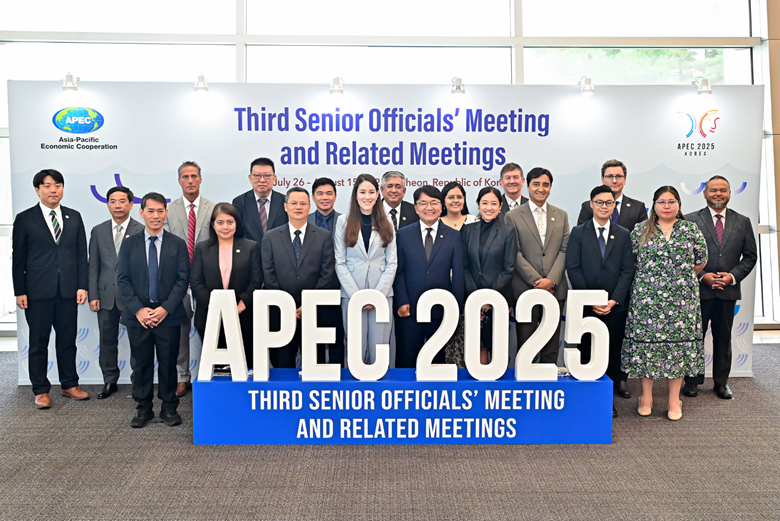Facing Earthquakes and Extremes, Asia-Pacific Deepens Disaster Cooperation

A powerful earthquake off the coast of Kamchatka jolted the Asia-Pacific just hours before emergency officials from APEC economies convened in Incheon for the 21st meeting of the APEC Emergency Preparedness Working Group (EPWG), a timely reminder of how disasters can ripple across the region without warning.
“Disasters know no borders, and they affect not only local communities but have long-term consequences for entire economies,” said Kim Gwang-yong, Vice Minister of Korea’s Ministry of the Interior and Safety, in his welcome address. “Cooperation and solidarity among APEC economies are more important than ever.”
Vice Minister Kim highlighted Korea’s recent experiences with typhoons, heavy rainfall and wildfires, noting that the country has continuously improved its disaster management systems.
He also emphasized Korea’s commitment to sharing these best practices with fellow APEC economies and expanding cooperation in ICT-based early warning systems, disaster prediction models using artificial intelligence (AI), and community-centered disaster resilience strategies.
The meeting’s agenda covered digital-based disaster risk management strategies, community leadership in disaster response and strengthening multi-layered governance.
Experts and officials discussed enhancing early warning systems, leveraging big data and satellite technologies and developing resilient infrastructure that can support disaster-affected communities.
Sessions also focused on advancing collaborative governance, bridging gaps in disaster risk management, and preparing communities for emerging risks.
EPWG co-chair Dayra Carvajal of the United States Federal Emergency Management Agency, urged members to recognize the compounding risks affecting the region’s interconnected systems.
“From devastating earthquakes to wildfires and catastrophic flooding, this year has once again underscored the interconnected impacts of disasters in Asia-Pacific,” she said. “These compounding stressors that ripple through shared infrastructure remind us that events in one economy are frequently felt elsewhere.”
“This year, we must endeavor to identify concrete and practical ways in which to strengthen the systems that sustain regional economic growth and prosperity: our infrastructure, markets and supply chains.”
The agenda featured project updates and best practice exchanges by member economies including on topics such as disaster risk prediction and whole-community preparedness in urban, coastal and inland areas. Delegates examined how to bridge gaps in early warning systems, scale agile and adaptable governance across central and local levels and enable technology-driven disaster leadership.
“The more we prepare, the more we can reduce disaster damage. And the more we cooperate, the stronger our response can become,” Vice Minister Kim concluded.
Looking ahead, the group emphasized that continued collaboration under the newly launched EPWG Strategic Plan 2025–2027 will be essential to turn this momentum into durable systems of protection and preparedness.
The EPWG meeting is a key platform for promoting APEC’s vision of a resilient and prosperous future, with discussions expected to result in actionable policies and collaborative projects that can mitigate disaster risks, enhance regional preparedness and protect the lives and livelihoods of the 2.9 billion people who call the APEC region home.
For more information or media inquiries, please contact:
[email protected]

